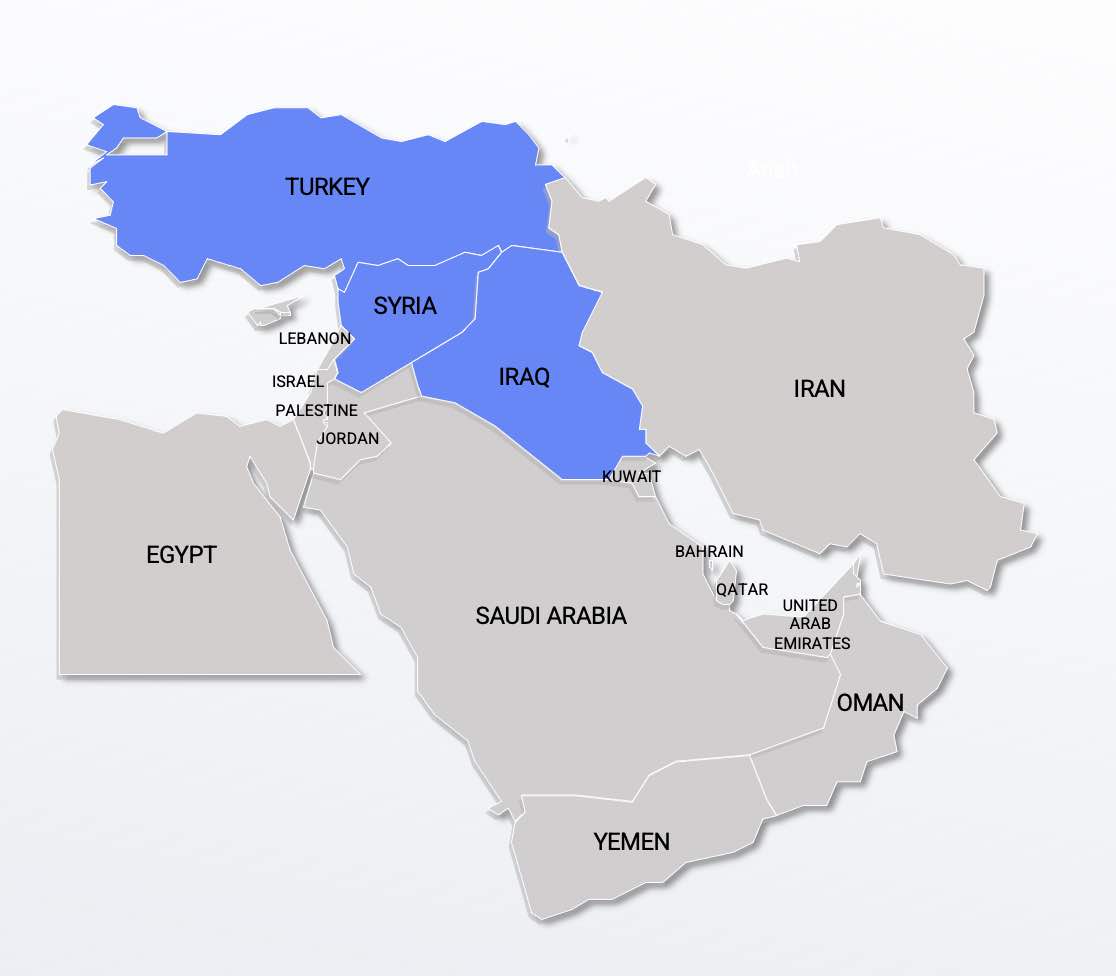Water in Crisis - Turkey, Syria, and Iraq

Water scarcity is a critical issue affecting Turkey, Syria, and Iraq, and it has become a major concern due to the limited water resources in the region. The three countries share the Tigris and Euphrates rivers, and their shared dependence on these rivers has created several challenges for water management and conservation.
Agriculture is the primary consumer of water in the region, and all three countries rely heavily on it for their economies. Climate change has exacerbated the challenges, with prolonged droughts, more extreme storm events causing flooding, and rising temperatures.
In Turkey, water scarcity is particularly acute in the southeast region due to the construction of large dams and irrigation systems on the Tigris and Euphrates rivers. These projects have significantly reduced downstream water flow, leading to increased tensions with neighboring countries, especially Iraq and Syria, who rely on these rivers for their water supply.
Syria is facing a severe water shortages, with water resources severely depleted due to over-extraction, pollution, and the impact of the war on infrastructure. Many areas, including the capital city of Damascus, experience frequent water shortages and rely on trucked water or expensive private water sources. The situation is further complicated by the fact that many Syrians have been displaced from their homes and are living in temporary camps where water resources are even scarcer.
Iraq is also grappling with water scarcity and desertification, a long-standing issue exacerbated by years of conflict and inadequate water management practices. The country's water infrastructure is outdated and poorly maintained, and many areas lack access to safe drinking water. The construction of large dams and irrigation systems in Turkey and Syria has reduced the water flow downstream, leading to conflicts with neighboring countries and even within Iraq, including in Kurdish controlled areas, where different regions and communities compete for limited water resources.
One of the significant drivers of the conflict in the region was the severe water shortages and reduction of diesel subsidies for pumping waters for farming, which led to economic hardships and social unrest, exacerbating existing tensions and grievances among the population. According to a report by the United Nations Development Programme (UNDP), the drought that hit Syria between 2006 and 2011 was "the worst long-term drought and most severe set of crop failures since agricultural civilizations began in the Fertile Crescent many millennia ago". The combination of water shortages and loss of diesel subsidies created a vicious cycle of poverty, unemployment, and discontent, which was exploited by extremist groups like ISIS to recruit and radicalize vulnerable individuals.
Water scarcity is a critical issue affecting Turkey, Syria, and Iraq, with severe implications for agriculture, public health, and regional stability. Addressing this problem requires a comprehensive and cooperative approach that takes into account the shared water resources and competing demands of these countries. Effective management and conservation of water resources, along with sustainable agricultural practices, are crucial to ensuring a more water-secure future for the region.
* This article was produced in part by generative assistive technologies, then edited and reviewed for accuracy by The Water Project staff.